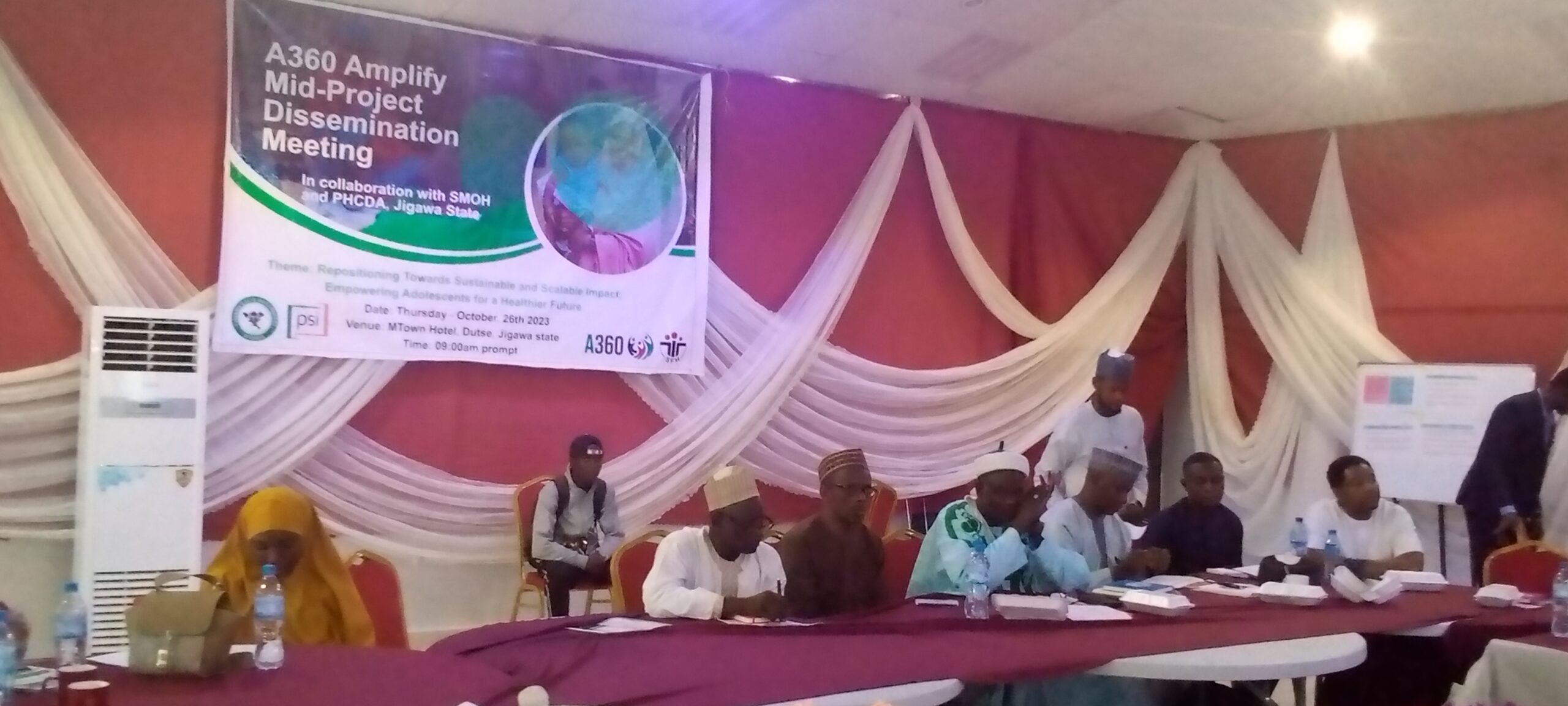The Jigawa State government has been called upon to pay more attention to adolescent married girls in its Human Capital Development (HCD) projects in order to improve their socio-economic lives and healthcare services.
This call was made in a communique issued after a day-long meeting for the Society for Family Health (SFH) A360 mid-Project destination at Mtown Hotel in Dutse, the state capital.
The communique stated that the health sector has been making significant efforts around Adolescent Sexual and Reproductive Health (ASRH), and there are now a good number of youth-friendly service providers, which have improved adolescent health outcomes.
According to the communique, “there is now a new strategy to support pregnant adolescent girls, known as the MNCH. What resources are needed to provide a holistic solution for Adolescent Girls and Young Women in the state?”
The communique also appealed to the State Ministry of Health for free healthcare services for adolescent students in boarding schools, adding that using the BCHPF, 281 people have been provided with free healthcare services.
The communique added that all boarding school students in Jigawa have access to free healthcare services and assured that the upcoming TISHUP program will address that of tertiary students.
In an interview with the Director of the State Primary Healthcare Development Agency, Dr. Shehu Sambo, during the meeting, he told Tribune Online that 30 percent of women of reproductive age have accepted and are using contraceptives for birth spacing and control for a healthier family status.
Dr. Shehu Sambo explained that the number of women of reproductive age in the state is estimated to be over 1.5 million, and the percentage is increasing day by day.
The director noted that contraceptive commodities and services are available in most of the public health facilities in the state, aiming to provide easy access to any interested woman, as it is a choice for any family.
He attributed the shortage of commodities in the hospitals to the increasing demand for them in both rural and urban areas.
In her part, the State Program Manager, Bethsheba Daure, said the program is aimed at supporting women and adolescent married girls in achieving family health in life.
She said the meeting was aimed at breaking down barriers to voluntary updates on modern contraceptives among girls aged between 15 and 19 in Nigeria.
“We want to improve sexual and reproductive health outcomes for young adolescents and women in Jigawa state,” she explained.
Currently, the state’s contraceptive prevalence is only 4.7%, and there are hopes to reach 27% by 2024 to reduce the fatality rate of women of reproductive age.
“Jigawa has a higher fatality rate of women, which affects the socio-economic development of the community.”
READ ALSO FROM NIGERIAN TRIBUNE






